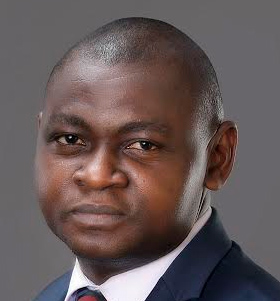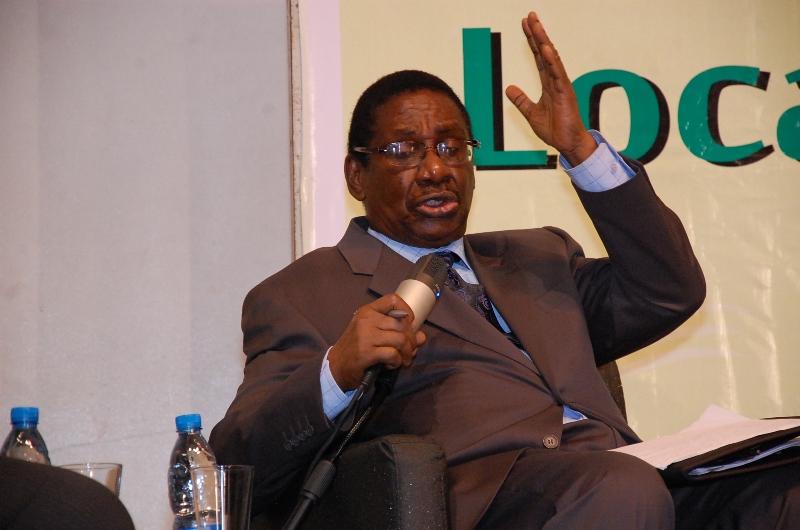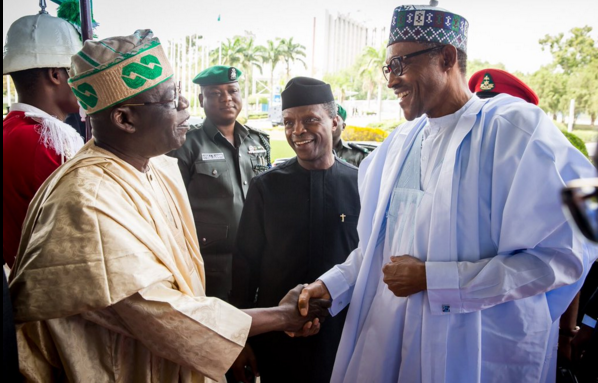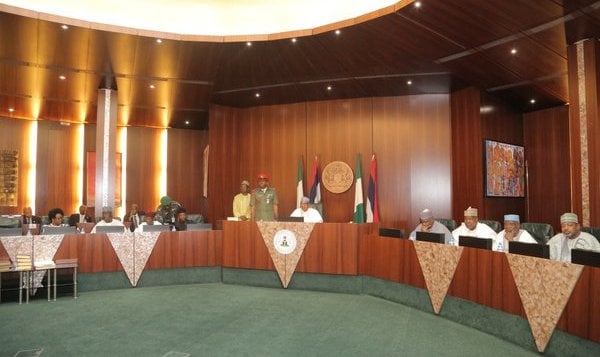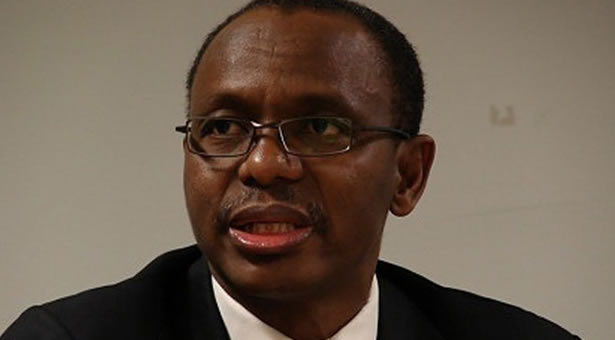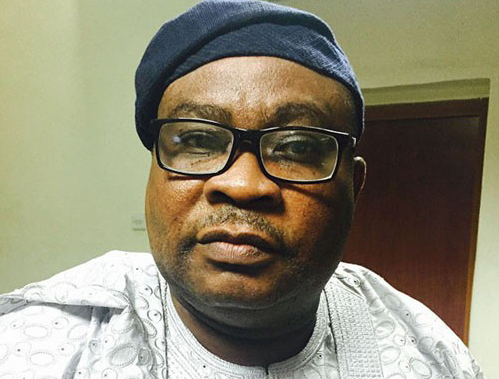In the heat of no light and no fuel across the country which has gotten further worsened in the last few days with a litre of petrol selling for N300 and even N500 in some parts of the country, I hope you didn’t miss out on the interesting conversation about a roundtable convened to brainstorm on winning the war against corruption which held last Thursday at the University of Lagos.
At the roundtable organised by the university’s Department of Jurisprudence and International Law, tagged “Winning the War against Corruption,” legal scholars and experts hurled verbal missiles at one another as they discussed the endemic corruption in the country and how to eradicate it.
However, before I proceed, please, allow me to quickly make this clarification. I don’t belong to the APC. And neither am I a member of the PDP. As a proud citizen of this green and beautiful land, I belong to the group who believe their own political party is Nigeria First (NF). I believe this clarification is important as we continue in this piece I’ll warn is a bit lengthy this week.
In attendance at the event to discuss the corruption theme were Professor Itse Sagay, Chairman Presidential Advisory Committee on Anti- Corruption; Oby Ezekwesili, former Education Minister and former World Bank Vice President; Femi Falana, who was represented by Wahab Shittu; Femi Aribisala, journalist and scholar; Ayo Obe, a respected civil society activist and other dignitaries. A new book ‘Legal Perspectives to Corruption, Money Laundering, and Assets Recovery in Nigeria,’ was also launched at the ceremony.
Advertisement
Meanwhile, Ebuka Nwankwo, a columnist on TheCable, Nigeria’s independent online newspaper, gave an interesting analysis of the discourse in his intervention, “The day Aribisala annoyed Sagay and Ezekwesili” published two days after the event. But this piece isn’t about Nwankwo’s contribution but rather about another article, this time, a syndicated piece titled, “A crooked studentship and the clap for corruption,” which was authored by Godwin Onyeacholem, a journalist, and published on April 3 on TheCable, Sahara Reporters and Premium Times.
Now, for those who don’t have the gist of the matter, some background information might be very helpful.
The event that Thursday morning began with a keynote speech themed ‘Rule of Law and Treatment of Politically Exposed Persons in Corruption Cases’ delivered by human rights lawyer, Falana (SAN), who was represented by Shittu, a Lagos-based lawyer. The main point of Falana’s presentation was his advocacy for the creation of special courts to handle corruption cases in the country.
Advertisement
However, the drama at the event began immediately controversial columnist and scholar, Femi Aribisala, took to the podium to discuss Falana’s speech. He said there was no serious fight against corruption in the country as yet and countered a point which had earlier been raised by Ezekwesili, who defined corruption as “the abuse of the public space for private gain.”
Aribisala told the audience corruption cannot be narrowly defined the way Dr. Ezekwesili defined it, only relating to public institutions. In his view, corruption permeates the Nigerian society. He added that much as we profess to be angry against corrupt practices in Nigeria, we haven’t yet shown with our attitudes and actions that we are truly fed up with corruption in the polity and are ready to collectively say enough is enough as a people.
Why this is so, Aribisala says he cannot say.
He went on to tell the audience his opinion about the fight against corruption by the Buhari administration. That in 10 months of Buhari’s government, there has been no institutional structure that has been laid against corruption but only media circuses. That, as far as he is concerned, the war against corruption lacks a clear focus and he thinks it is merely a fight against PDP members. He added that the APC which won the 2015 election was just a makeover of politicians as people moved from PDP to the APC. “If they were corrupt in PDP, they became clean when they were in APC,” he told the gathering.
Advertisement
Despite those points, Aribisala wasn’t done yet as he continued in his contributions.
“If President Buhari was determined to fight against corruption, my feeling is that he gave up after losing election three times. Because the fourth time, he formed an alliance with people he despised before. And they were not necessarily people who had a track record of anti-corruption.
“You cannot fight corruption with corruption. And corruption is more than stealing of money. If you disobey the rule of law, you have corrupted the system. If you create an avenue where you have a big margin between the official foreign exchange rate and the parallel market, there’s going to be corruption. If you have children of the rich getting into the CBN on nepotistic grounds, the corruption is still with you.
“If you have a budget that is padded left right and centre, and after this was revealed, you passed it and say only a small amount changed in it, and we do not know what is in the new budget, you can’t say you are against corruption. There is no transparency in any of these things,” Aribisala told an attentive audience.
Advertisement
As reported by the media, especially The Sun and Premium Times, the points Aribisala raised so resonated with the students that they gave him a thunderous applause.
But that was where Sagay who chaired the event was irked. The professor of law lambasted the students for clapping. He said the forum was for serious business and not one for applauding points raised by a speaker.
Advertisement
“We are not here to make students clap. We are here on a very serious business. And students don’t behave like American electorate who are ignorant. You don’t dilute the meaning of corruption to a point that is meaningless. This is a very serious discussion and I want us to be serious about it. If you are anti-government, please, go and campaign against government and let your party win in 2019. This is not a venue for PDP campaign.”
Now, while I do not know if Professor Sagay is a card-carrying member of the APC, he decided to be a mouthpiece of the APC by telling the audience the APC has a manifesto that spelt out its strategies to combat corruption and admonished Aribisala to stop making statements devoid of fact. While this can be overlooked, I’m however surprised that in making his point, Sagay would choose to also accuse some foreign citizens of being ignoramuses.
Advertisement
However, in her response to Aribisala’s points, Ezekwesili, said the systemic nature of corruption as a cancer against a system of government is demonstrated in the fact that the activity of corruption begins to happen at different levels and so, she is not surprised that some of the students were clapping.
“The reason you were clapping is that you are a page in your own level of corruption. There are many whose exam malpractice is the basis upon which they have come to school. So, when you are talking about the need to wage a war against corruption, they are completely disconnected from it. There is a complete dissonance from it,” the former education minister told the obviously embarrassed students.
Advertisement
Of course, while Aribisala is entitled to his opinion even as I believe some of the points he raised can be faulted, what I however expected Prof. Sagay and Ezekwesili who didn’t agree with his viewpoint to do was to counter it with facts and not the braggadocio, the bullying, and the intellectual terrorism they adopted on the platform right before the students.
Even God Almighty, who is wisdom in His entirety, still gives man, mortal man made of clay and his own creature, the total freedom to always reason with Him and even take his own actions. He doesn’t browbeat man into accepting His viewpoints or positions.
And that is why I find Sagay’s and Ezekwesili’s positions extremely disturbing. To them, clapping is corruption. It is the new corruption. Like I often say, as citizens, our individual opinions on issues affecting our country may differ but I believe all opposing sides on any matter whatsoever must always be ready to bow to superior logic and humbly admit so. We can always debate or argue our points on knotty issues without trading insults. It reduces our personalities. It debases our humanity.
A university is a citadel of learning. It is a marketplace of ideas. It aims to add to the body of knowledge through continuous research, empirical evidence and facts. Facts, not emotions.
So, that Sagay and Ezekwesili are uncomfortable at the free expression and open stance of the students at the debate is the peak of intolerance. Yes, they are passionate about Nigeria. And their patriotism may not be in doubt. But like them, other patriots still abound in the land; and even among those students Ezekwesili ungraciously accused of being on a page in their own chapter of corruption.
Their verbal attack on the students was therefore absolutely unnecessary. By speaking down on those undergraduates in such manner, I’ll say they really let themselves down.
Now, concerning Onyeacholem’s article, “A crooked studentship and the clap for corruption,” the writer condemns the behaviour of the students during the session. Like Prof. Sagay and Ezekwesili, he is angry that they applauded Aribisala’s position at the forum which seemed to make a lot of sense to them. The writer would thus want us believe there is no positive future for our country because of this.
Aside other supporting scenarios he painted in his article to try and support his position, the behaviour of the students, according to Onyeacholem, “reduces one’s hope for the prospects of a positive future of our country.”
Not done yet, he further argues: “It is sad to say that for majority of young people, the main purpose of seeking university education is not to acquire knowledge that will legitimately improve their lives and equip them to help correct societal ills. They are in the university just so they can lay their hands on a certificate that will potentially facilitate a connivance with the wreckers of the society who are both in government and the corporate world.
“That is why students will clap, rather than stone a man who stood before them to rubbish the ongoing, unprecedented fight against corruption – a vice that has systematically depleted their lives through low quality education and appalling living conditions. Yet these students are not seeing the severe damage corruption is doing to their lives.”
Now, I believe that in any intellectual arena where better ideas, higher logic, and superior sense are expected to be the only punches decently allowed to be thrown at opponents, it is extremely disappointing that Onyeacholem would say Nigerian undergraduates only want to get certificates so they can join the wreckers of society in government and in the corporate world or even insinuate the stoning of a man, who holds contrary views to the ones held by those he is sympathetic to, by the students. Such type of statement is most unfortunate, regrettable and totally condemnable.
The writer further says in a more discriminating society where students place great premium on their future, they would have complemented government’s efforts by taking up the front seat in the fight against corruption. That they would by now have appropriated the fight by camping out at the National Assembly and would not leave until allegedly corrupt politicians stand down to face justice. Curiously, he limits corruption to the National Assembly and makes no mention of that perpetrated in the executive arm of government by various levels.
My view? It’s easy to blame students for not trooping out to protest but that’s nothing but cheap blackmail. And talk is also cheap. As Nigerians, we must frankly ask ourselves if Nigeria has inspired enough patriotism in the highest percentage of Nigerians that most of us would be willing and ready to die for the country.
No matter our holy anger and patriotic preachments whatever our names, until the Nigerian passport is worth something to all citizens, whether it is in the healthcare, or good roads, or stable power supply, or employment, or education, or security for instance, we won’t form or forge a cohesive citizenry that will be willing to lay down their lives for the country as we observe citizens in other parts of the world do.
Of course, there are a number of courageous Nigerians who are ready to lay down their lives for this country; however, those who insist they cannot do so must not be abused. We all make choices. It’s their choice. No abuses. No insults.
But why do we even expect Nigerian youths or undergraduates to protest when they cannot peacefully do so or air their grievances in their own country without being harassed or shot at by security agencies and agents of the state? It’s part of our crudeness as a state that in the 21st Century global village, Nigerian men and women and youths whoever they are and whatever they do, cannot confidently express their grievances to the government in rallies and protests without the fear or risk of being shot at. That is why those we put in political leadership need to renew their minds and fully imbibe the principles and tenets of democracy.
Moreover, how many Nigerian parents today happily approve that their wards join such aluta processions when they knows things could get out of hand and they may be called on phone and given the unpleasant news that their wards are lying cold in the mortuary?
Before the author wrapped up his piece, he also insinuates that students won’t do this because they are “anxious to graduate by any means so that they can quickly enrol in the club of the corrupt.” Now, such inappropriate generalization and negative description of Nigerians students by the writer is an insult on Nigerian undergraduates and most unfortunate.
My journalist colleague might be corrupt but he needs to humbly accept that while corruption may permeate all strata of our society, not all Nigerians are corrupt and not all Nigerian undergraduates are corrupt. He needs to realise, if he doesn’t already know, that there are still Nigerians and young people in our country who will never bow to corruption, indecencies, and Nebuchadnezzar no matter what. It is a statement he ought to apologise for.
However, Onyeacholem could as well lead such procession he suggests. He has my total support. I believe he won’t walk alone. Many other Nigerians will join him even without being mobilised to do so by politicians and those with their own private interests and political agendas.
While I know that Aribisala’s column and interventions are sometimes controversial and it’s evident he is sympathetic to the PDP government of former President Goodluck Jonathan, but the very few occasions I’ve read him, I felt he made sense on his positions. And so, of the points he raised at the Unilag session, for which one is Onyeacholem really crucifying him?
Although I quite agree with the writer that the level of intelligence displayed by our youth should worry anyone who is passionate about Nigeria’s future even as I also believe many parents are today failing in their parental duties and responsibilities, but based on the facts of the matter in respect to the Unilag corruption debate and as reported by the media, the students in that hall did nothing wrong in applauding a viewpoint they believed expressed their own thoughts and one which they felt was a superior logic to that being offered by other discussants.
For example, Nigerians were told ministers in the current government would declare their assets by President Buhari before he was sworn in. This promise has since been waved aside like a number of the promises made by the government before assuming office. It’s little but weighty evidences as these that give vent to the type of arguments raised by Aribisala and one which the students easily identified with. For a government serious with its anti-corruption war, I believe such commendable proposition is not one to be jettisoned. And there is always a clear difference between a government’s sincere fight against corruption and a citizenry’s perception that the government in power is being selective in its anti-corruption war.
Therefore, the clap of the Unilag students was never a clap for corruption like Dr. Ezekwesili, Prof Sagay, or their sympathiser, Onyeacholem, would want us to erroneously believe through their intellectual terrorism. It was a clap for the points of a speaker who made better sense in that session. And so, rather than being abused and vilified, the Unilag students should instead be saluted and commended for their courage.
Finally, as we grapple with the current realities of our country, we must not tire of continuously discussing ways of making Nigeria better. But in doing so, we must learn how to decently engage one another on the issues without unnecessary insults at those who don’t agree with our views. I believe this will help us significantly moving forward. God bless Nigeria.
Kolawole, an award-winning journalist and media entrepreneur, is author, The Gatekeepers. You can follow him on twitter: @ofemigan.
Views expressed by contributors are strictly personal and not of TheCable.
